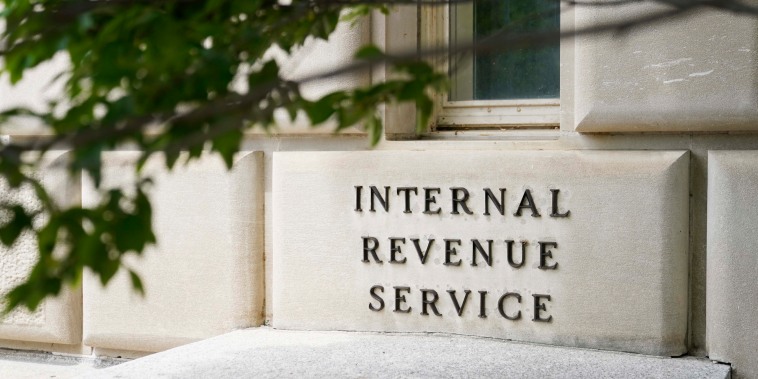The IRS announced Friday that it has recently collected more than half a billion dollars from millionaire Americans who owed tax debt.
The agency credited the passage of the Inflation Reduction Act for its stepped-up ability to pursue ‘high-income, high-wealth individuals,’ as well as complex partnerships and large corporations, who are not paying overdue tax bills.
The IRA, pushed by President Joe Biden and approved in 2022, earmarked $80 billion over 10 years to step up the IRS’ enforcement capabilities. While $20 billion was ultimately clawed back in 2023 as part of the deal to head off a debt-ceiling crisis, the agency indicated it had already made use of its initial allotment.
Over the past year, the IRS said, enforcement officers had recouped approximately $520 million from the most well-off segments of society.
“The IRS continues to increase scrutiny on high-income taxpayers as we work to reverse the historic low audit rates and limited focus that the wealthiest individuals and organizations faced in the years that predated the Inflation Reduction Act,’ said IRS Commissioner Danny Werfel in a release. ‘We are adding staff and technology to ensure that the taxpayers with the highest income, including partnerships, large corporations and millionaires and billionaires, pay what is legally owed under federal law.’
The Biden administration previously pledged to freeze audit rates for filers with $400,000 or less.
In its announcement, the IRS said its latest efforts have been concentrated on taxpayers with more than $1 million in income and more than $250,000 in tax debt. After an initial round of audits of 175 high-income earners yielded $38 million, it expanded last fall to 1,600 new taxpayers in this category that owe hundreds of millions of dollars in taxes, ultimately collecting $482 million.
The agency said it has also zeroed in on 76 of the largest corporate partnerships in the U.S., with more than $10 billion in assets, whose structure may indicate a compliance risk. The partnerships represent a cross-section of industries including hedge funds, real estate investment partnerships, publicly traded partnerships, large law firms and other industries, the agency said.


































